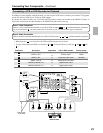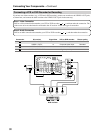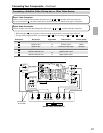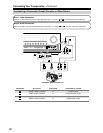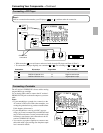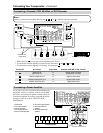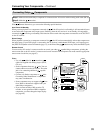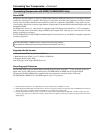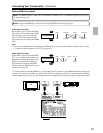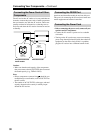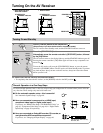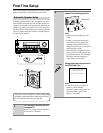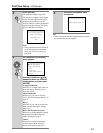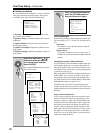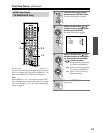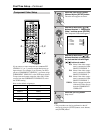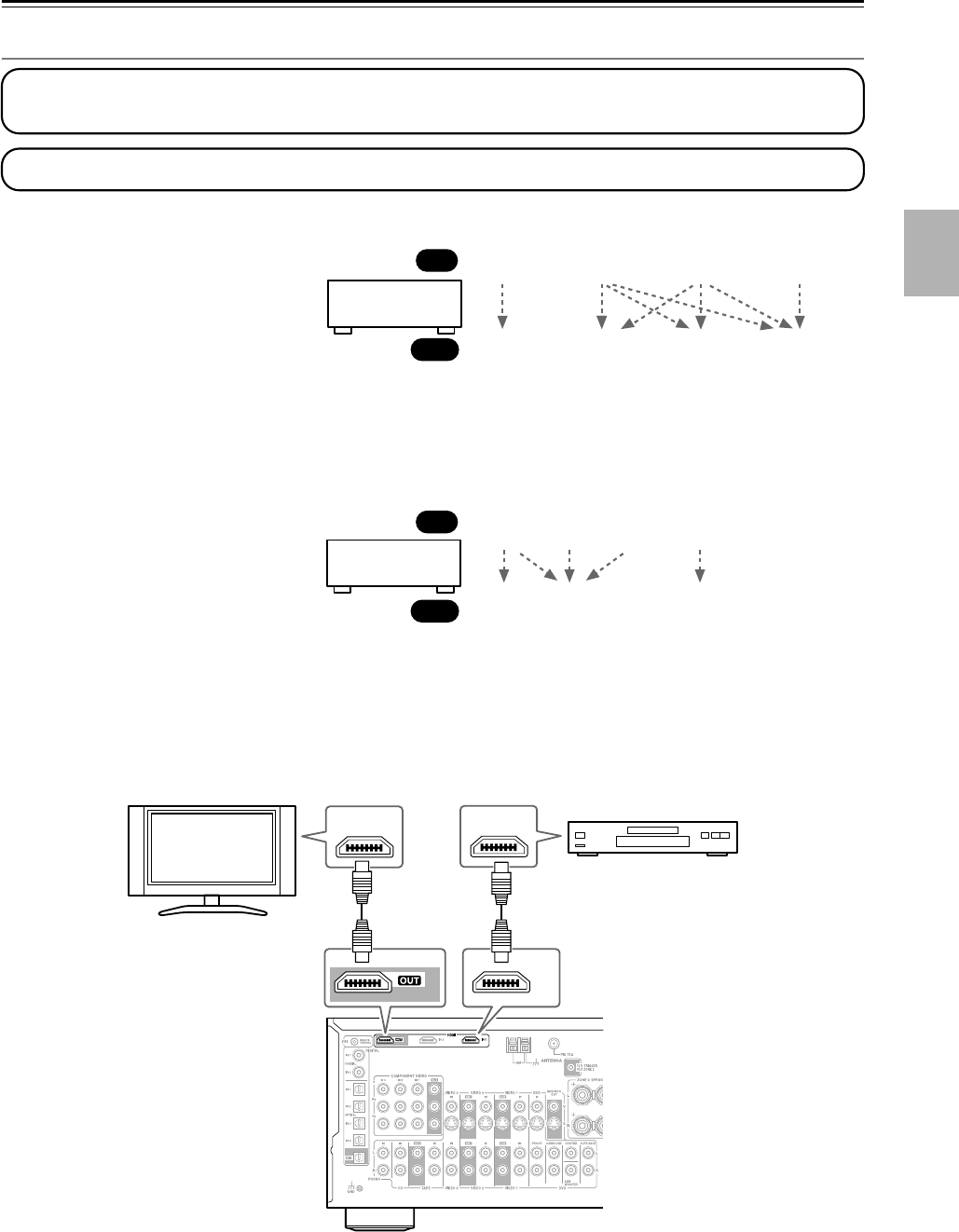
37
Connecting Your Components—Continued
Making HDMI Connections
Video Signal Flow Chart
Digital video signals received at HDMI
IN 1 and 2 are only output by the HDMI
OUT and sent to your TV. Composite
video, S-Video, and component video
input signals are not output by the HDMI
OUT.
Note:
• The onscreen setup menus are not output by the HDMI OUT, so you’ll also need to make a composite video, S-Video,
or component video connection to your TV (see page 26).
Audio Signal Flow Chart
Digital audio signals received at HDMI
IN 1 or 2 are output by the speakers and
headphones connected to the AV receiver.
They’re also output by the OPTICAL
OUT and can be output by the HDMI
OUT by setting the HDMI Audio Out set-
ting to On (see page 79).
* To listen to audio received at HDMI IN 1 and 2, through your TV’s speakers, set the HDMI Audio Out setting to On
(see page 79). Note that some audio (e.g., DVD-Audio) may not be output by your TV. Also, audio formats and sampling
rates not supported by your TV may not be output. Be sure to configure your DVD player’s output settings appropriately.
Step 1: Use HDMI cables to connect the TX-SR803/803E’s HDMI jacks to your HDMI-compatible DVD player,
TV, projector, and so on.
Step 2: Assign each HDMI IN to an input selector in the HDMI Video setup (see page 43).
IN
OUT
TX-SR803/803E
Composite
Composite
S-Video
S-Video
Component
Component
HDMI
HDMI
IN
OUT
TX-SR803/803E
HDMI
HDMI
Optical
Optical
Coaxial
Analog
Analog
*
HDMI
IN
HDMI HDMI
IN 1
HDMI
OUT
TV
DVD player



